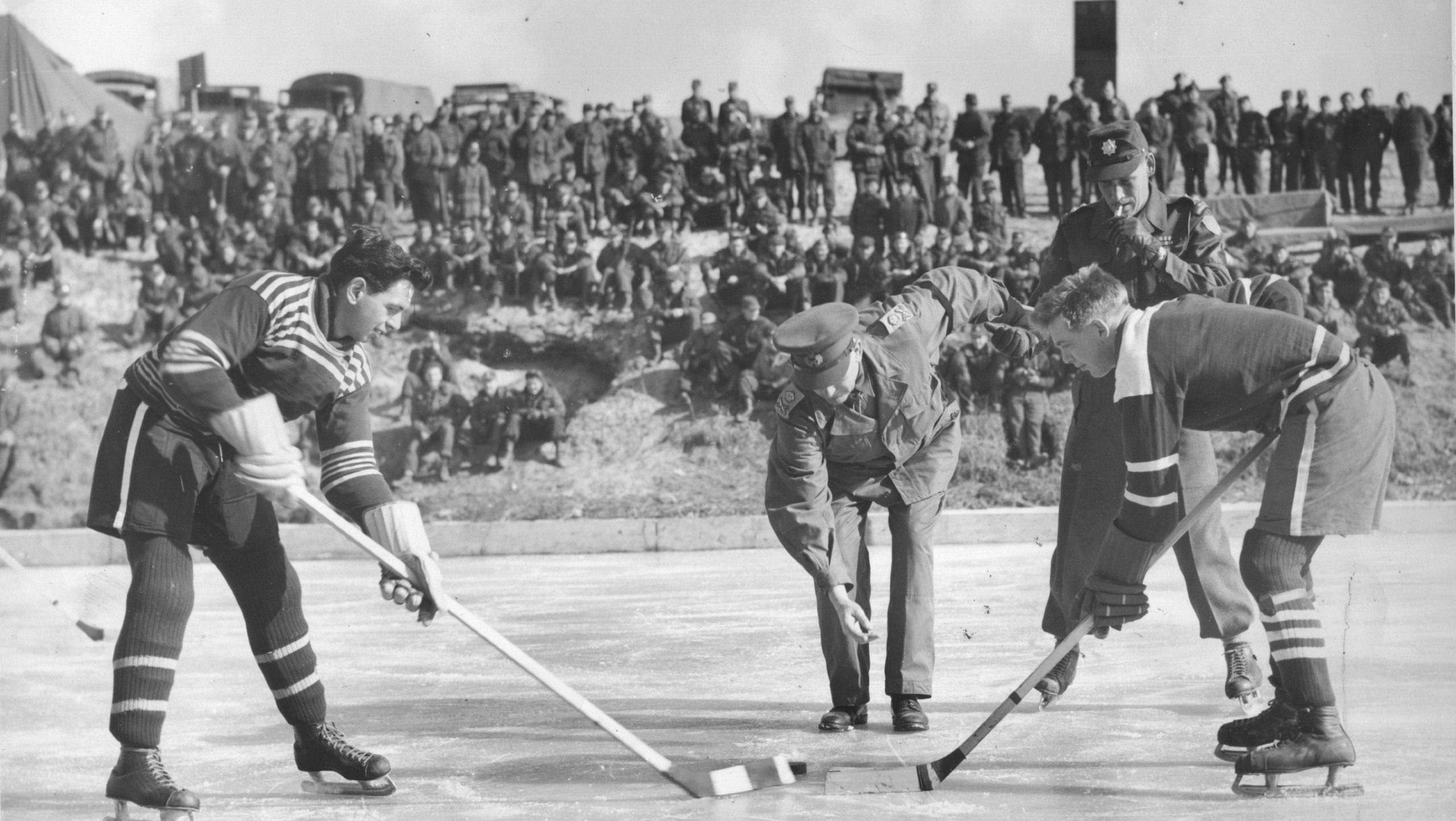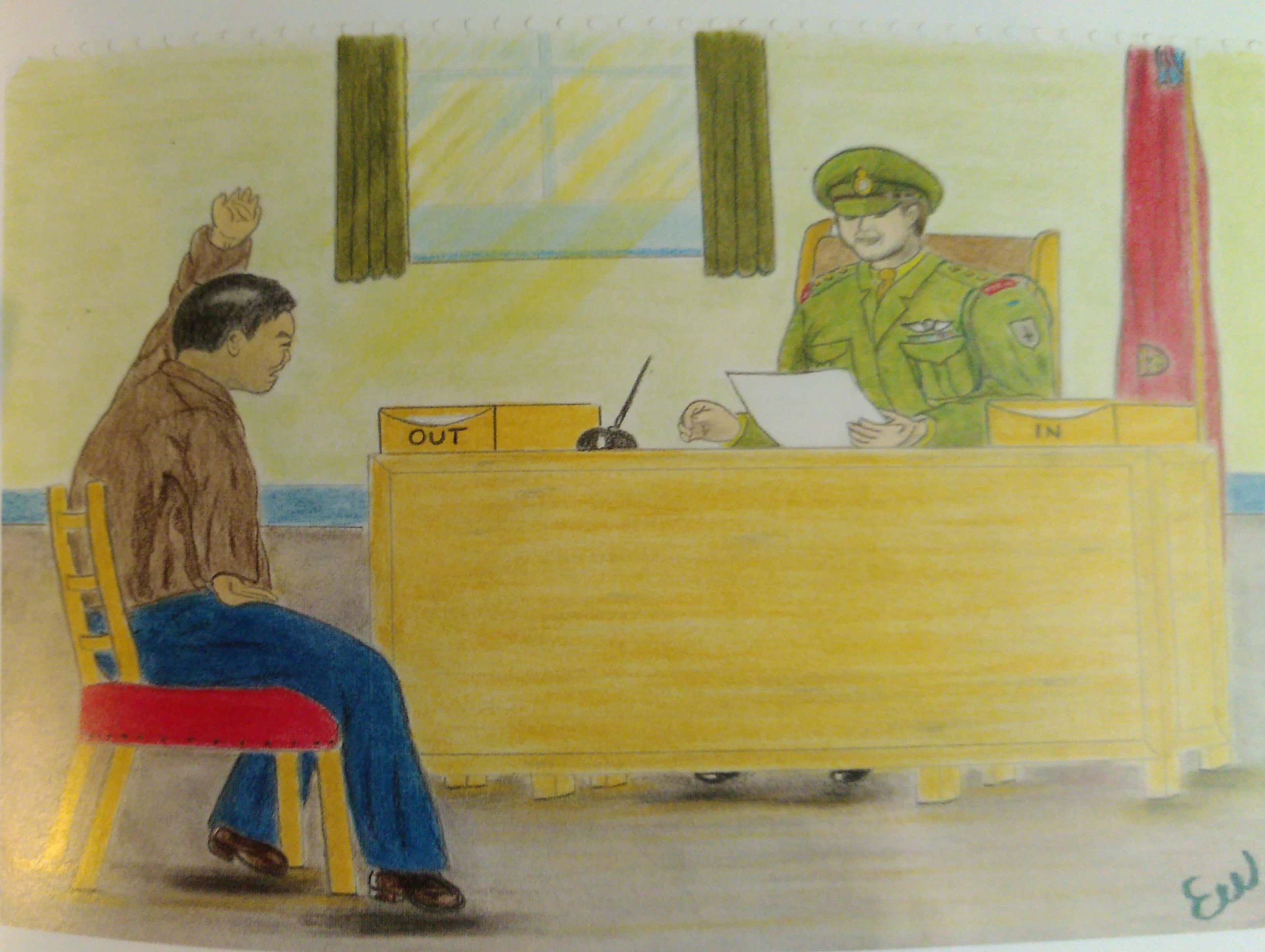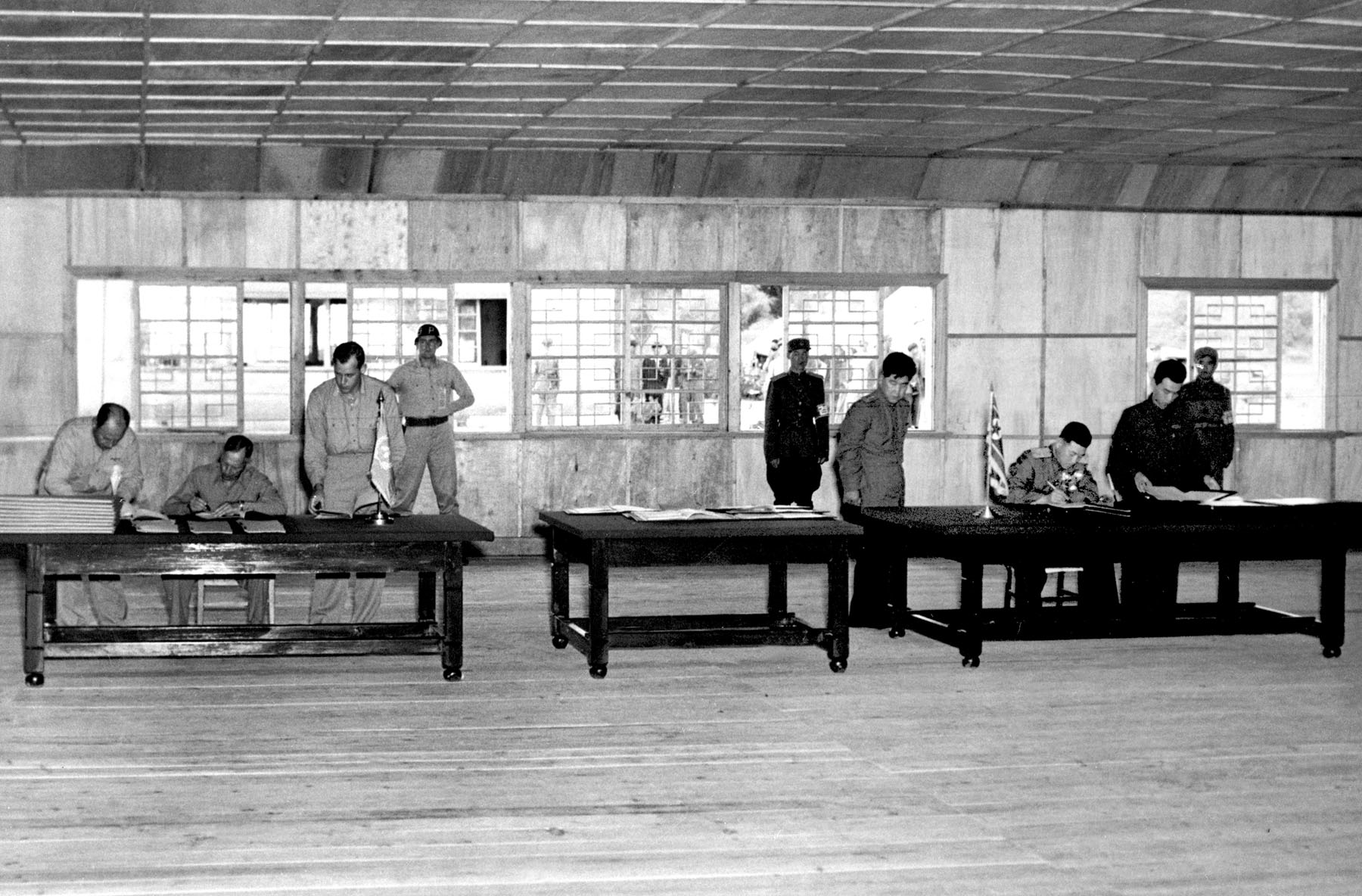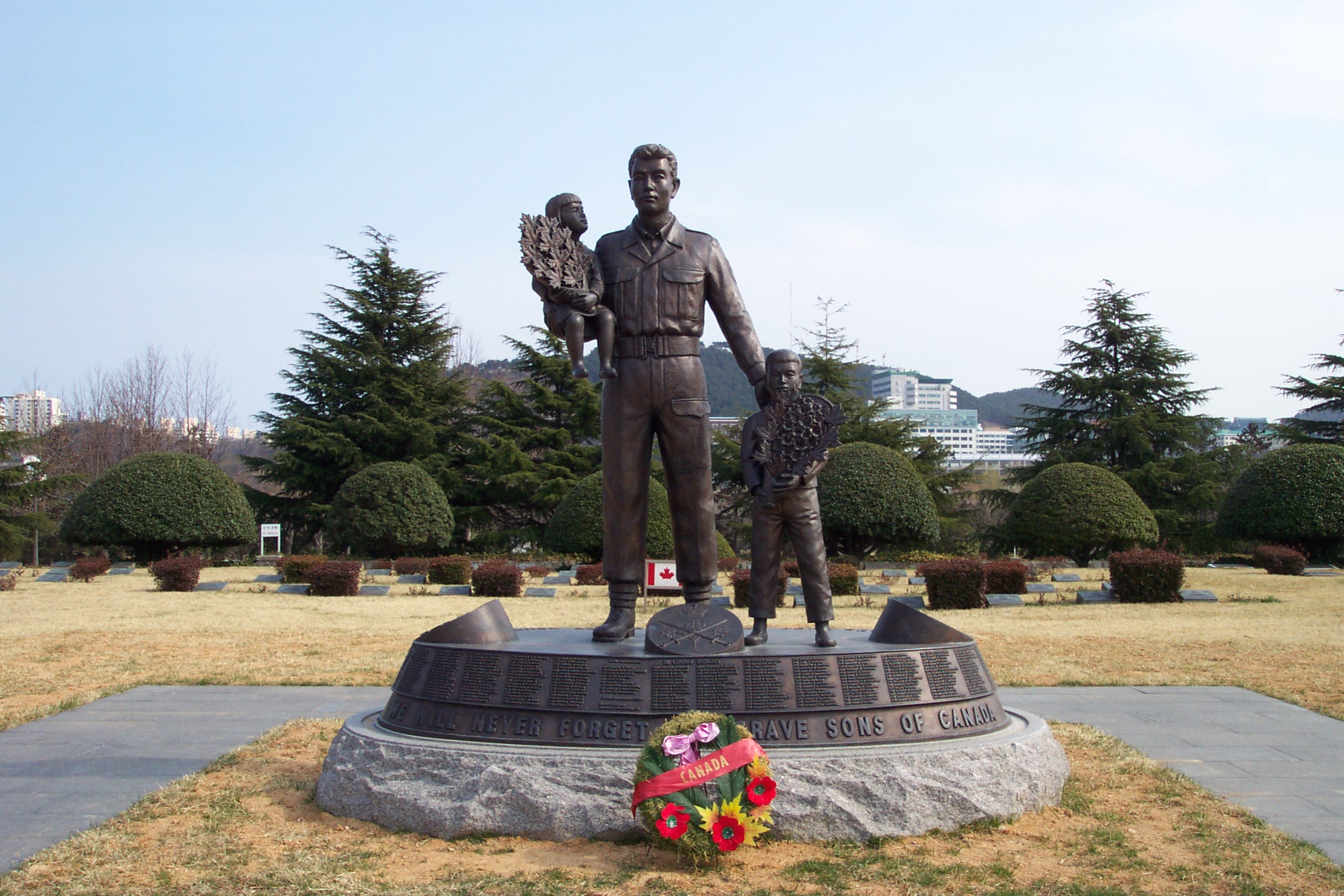Le Canada et la Corée
Engaging Students with the Korean War and Beyond
Engager les élèves avec la guerre de Corée et ses conséquences
Lessons created by OHASSTA educators for the Grade 6 and Grade 10 classroom in both English and French focusing on developing historical thinking skills, building on literacy, and thinking critically.
Leçons créées par le personnel enseignant de l’AESHO pour les classes de 6e et de 10e année, en anglais et en français, qui mettent l’accent sur le développement de la pensée historique, la littératie et la pensée critique.
These lessons were funded by the Ministry of Education of Ontario and created to support educators in their investigation of the relationship between Canada and Korea. The timely release of these resources coincides with Asian Heritage Month. For more information about Asian Heritage Month or to preview other lessons exploring Korea see the resources below.
Ces leçons ont été financées par le ministère de l’Éducation de l’Ontario et créées pour aider les éducateurs à étudier les relations entre le Canada et la Corée. La publication de ces ressources coïncide avec le Mois du patrimoine asiatique. Pour plus d’informations sur le Mois du patrimoine asiatique ou pour avoir un aperçu d’autres leçons sur la Corée, voir les ressources ci-dessous.
- Grade 6 Lessons / Leçons pour 6e année
- Grade 10 Lessons / Leçons pour 10e année
- Looking for more resources to support learning during Asian History Month?
Grade 6 Lessons /
Leçons pour 6e année
There are FOUR lessons in both English and French. Each lesson consists of a lesson plan and ALL necessary resources, handouts, and supplementary material.
Il y a QUATRE leçons en anglais et en français. Chaque leçon se compose d’un plan de cours et de TOUTES les ressources, documents et matériel supplémentaire nécessaires.
Why is the Korean War commemorated by a hockey game?
In this lesson, students will study primary and secondary sources related to the Imjin Classic, a hockey game that commemorates Canada’s presence in the Korean War. They will view and annotate videos and use a graphic organizer to answer the inquiry question: Why is the Korean War commemorated by a hockey game?
Pourquoi commémore-t-on la guerre de Corée par un match de hockey?
Dans le cadre de cette leçon, les élèves analyseront des sources primaires et secondaires liées à l’Imjin Classic, un match de hockey qui commémore la participation du Canada à la guerre de Corée. Ils visionneront et commenteront des vidéos et utiliseront une grille d’organisation pour répondre à la question d’enquête : Pourquoi commémore-t-on la guerre de Corée par un match de hockey?
What makes an impactful memorial?
In this lesson students will have the opportunity to explore and discuss what makes an impactful memorial through the remembrance of the Korean war. They will explore memorials honouring Canada’s participation in the Korean War, in order to help them establish their own criteria in determining whether a memorial is impactful.
Comment juger si un mémorial est mémorable?
Dans le cadre de cette leçon, les élèves examinent des mémoriaux de la guerre de Corée pour discuter de ce qui les rend mémorables. Ils analyseront des mémoriaux qui soulignent la participation du Canada à la guerre de Corée afin de les aider à établir leurs propres critères pour déterminer si un mémorial est mémorable.
How do many stories shape what we know about the Korean War?
In this lesson students will explore different stories from the Korean War. They will explore these stories through interviews, videos, articles, and book excerpts in order to examine how these stories shape what we know about the Korean War.
Les nombreuses histoires sur la guerre de Corée
Dans le cadre de cette leçon, les élèves explorent différentes histoires sur la guerre de Corée. Ils examineront ces récits au moyen d’entrevues, de vidéos, d’articles et d’extraits de livres afin de déterminer comment ils façonnent ce que nous savons au sujet de la guerre de Corée.
Did Canada contribute to peace in Korea?
In this lesson students will explore Canada’s contributions to peace in Korea. They will examine and annotate several different perspectives on Canada’s role both during and after the Korean War to be able to respond to the inquiry question: Did Canada contribute to peace in Korea?
Le Canada a-t-il contribué à l’établissement de la paix en Corée?
Dans le cadre de cette leçon, les élèves explorent la contribution du Canada à l’établissement de la paix en Corée. Ils examineront et commenteront différents points de vue sur le rôle du Canada pendant et après la guerre de Corée afin de pouvoir répondre à la question d’enquête : Le Canada a-t-il contribué à l’établissement de la paix en Corée?
Grade 10 Lessons /
Leçons pour 10e année
There are FOUR lessons in both English and French. Each lesson consists of a lesson plan and ALL necessary resources, handouts, and supplementary material.
Il y a QUATRE leçons en anglais et en français. Chaque leçon se compose d’un plan de cours et de TOUTES les ressources, documents et matériel supplémentaire nécessaires.
Is hockey a significant part of the Korean War’s legacy?
In this lesson, students will study primary and secondary sources related to the Imjin Classic, a hockey game that commemorates Canada’s presence in the Korean War. They will view and annotate videos and use collaborative visible thinking strategies to answer the inquiry question: Is hockey a significant part of the Korean War’s legacy?
Le hockey est-il un élément important du
patrimoine de la guerre de Corée?
Dans le cadre de cette leçon, les élèves analyseront des sources primaires et secondaires liées à l’Imjin Classic, un match de hockey qui commémore la participation du Canada à la guerre de Corée. Ils visionneront et commenteront des vidéos et utiliseront ensemble des stratégies de réflexion visible pour répondre à la question d’enquête : Le hockey est-il un élément important de l’héritage de la guerre de Corée?
Is the Korean war Canada’s forgotten war?
In this lesson students will examine the remembrance of the Korean War and reflect upon whether the Korean War is Canada’s forgotten War. Through the exploration of established memorials, interviews and articles, they will explore how Canada’s role in the war is remembered and whether memorials are the best way to remember a war.
La guerre de Corée est-elle la guerre oubliée du Canada?
Dans le cadre de cette leçon, les élèves examinent la commémoration de la guerre de Corée et réfléchissent à la question à savoir si la guerre de Corée est la guerre oubliée du Canada. En analysant des monuments commémoratifs, des entrevues et des articles, ils exploreront la façon dont le rôle du Canada dans la guerre est commémoré et détermineront si les monuments commémoratifs sont la meilleure façon de se souvenir d’une guerre.
What stories are worth sharing about the Korean War?
In this lesson students will explore different stories from the Korean War. They will explore these stories through interviews, videos, articles, and book excerpts in order to determine how these stories shape what we know about the Korean War. Students will then reflect on which perspectives are missing and how they can impact our view and understanding of the Korean War.
Les nombreuses histoires sur la guerre de Corée
Dans le cadre de cette leçon, les élèves explorent différentes histoires sur la guerre de Corée. Ils examineront ces récits au moyen d’entrevues, de vidéos, d’articles et d’extraits de livres afin de déterminer comment ils façonnent ce que nous savons au sujet de la guerre de Corée. Les élèves réfléchiront ensuite aux points de vue manquants et à leur effet sur nos idées et nos connaissances sur la guerre de Corée.
Peace in Korea: lasting or unstable?
In this lesson students will explore Canada’s contributions to peace in Korea. They will examine and annotate several different perspectives on Canada’s role both during and after the Korean War to be able to respond to the inquiry question: Is peace on the Korean peninsula lasting or unstable?
La paix en Coréé : durable ou instable?
Dans le cadre de cette leçon, les élèves explorent la contribution du Canada à l’établissement de la paix en Corée. Ils examineront et commenteront différents points de vue sur le rôle du Canada pendant et après la guerre de Corée afin de pouvoir répondre à la question d’enquête : La paix dans la péninsule coréenne est-elle durable ou instable?
Looking for more resources to support learning during Asian History Month?
Look no further! OHASSTA has several other resources that will allow you to bring multiple voices into your classroom to deepen your student’s understanding.
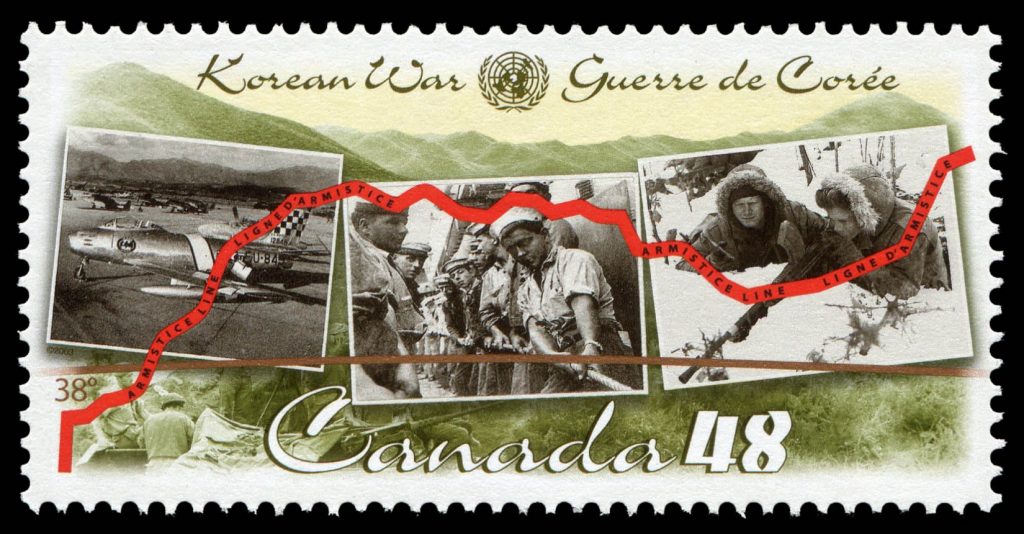
Asian Heritage Month Blog
Explore resources in this OHASSTA blog.
Korea on the Rise: Democracy and Economy
A team of teachers from the Ontario History and Social Sciences Association, in partnership with the Korean Cultural Centre of Canada, has sought to change this. In this webinar, you will be introduced to two ready-to-use modules: The History of Democratization in Korea and the Korean Economy (disponible en français: Développement Économique).
Each module contains four lesson plans that can be used alone or as a series in any History, Civics, Politics, or Economics class. Each lesson offers a variety of rich primary source material, engaging interactive activities, and teacher background information so educators have everything they need to start teaching this material immediately.
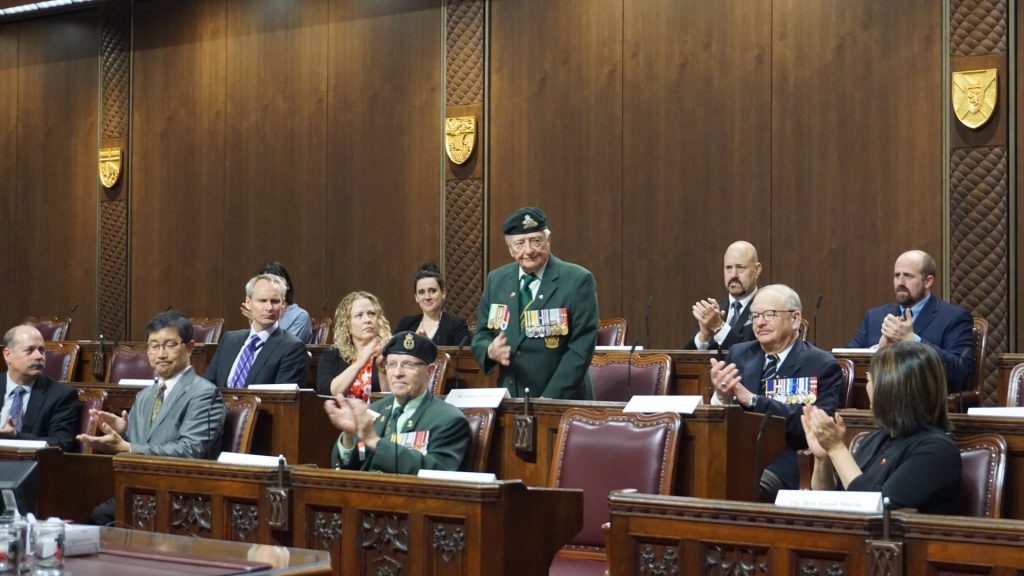
addresses the veterans and honoured guests
at the MOU signing, February 21, 2020,
Canada’s Participation in the Korean War:
Inquiry, Historical Thinking, and Action
Visit the Social Studies Education Network of Canada to learn about our shared histories and help your students build bridges across Canada and the world through these innovative Korean War inquiries developed by teachers for Canadian classrooms. The inquiries include all of the primary and secondary sources that students need to engage in the compelling questions through a series of formative tasks and include extension ideas to help students take informed action in their own school or community.
